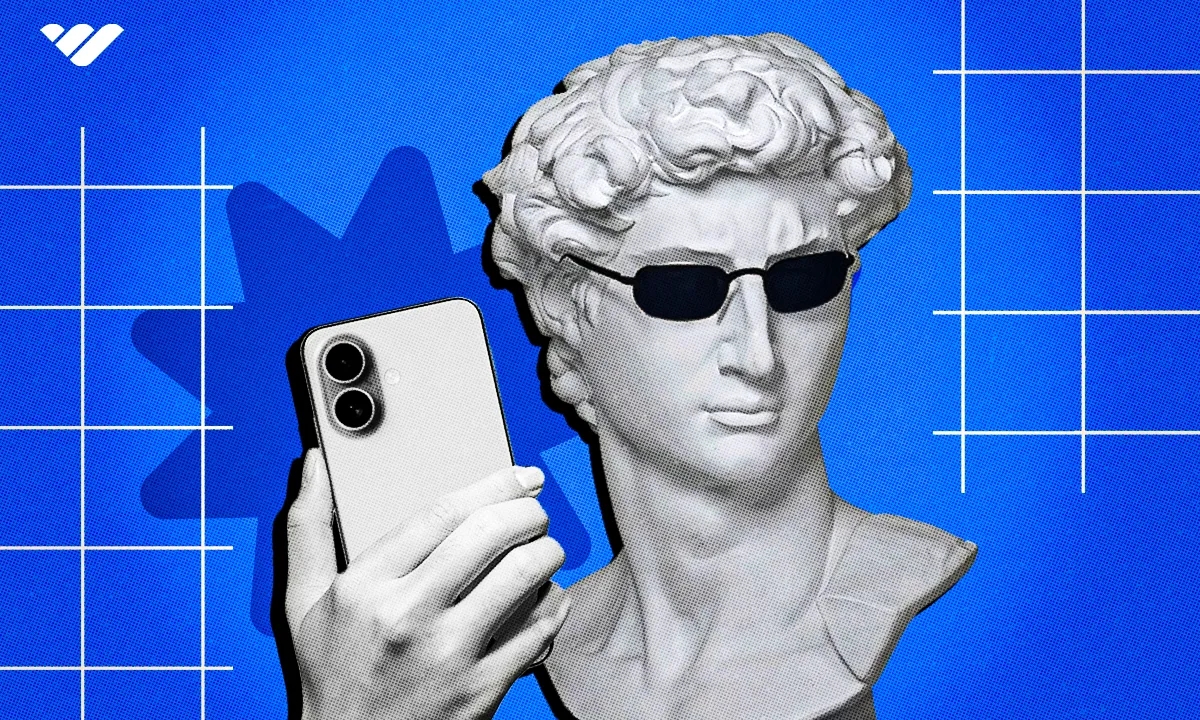If you're looking to reach Gen Z on social media then you may need to change your strategy. Read this guide to learn how you can market to Gen Z.
Key takeaways
- Gen Z rejects polished advertising and responds to raw, authentic content that feels human and imperfect.
- Micro-influencers drive more trust and engagement than celebrities because Gen Z values relatability over reach.
- Brands must take genuine action on social causes, not just make statements, to earn Gen Z loyalty.
If you've spent any time on social media lately, you've probably noticed that Generation Z is doing things differently. These digital natives (born between 1997-2012), who make up over 20% of the U.S. population, are reshaping how we think about online engagement—and advertisers are paying close attention.
It's not hard to see why brands are scrambling to connect with this demographic. With an estimated $2.7 trillion in spending power over the next few years, Gen Z isn't just buying for themselves; they're influencing their families' purchases too. But here's the kicker: they're not buying into the same polished, picture-perfect social media content that worked for millennials.
Gen Z has grown up with smartphones in their hands, and they’re looking for real connections, meaningful interactions, and content that resonates with their values. For brands and marketers, this means it's time to rethink the traditional social media playbook—because what worked yesterday might not cut it with Gen Z today.
What are the defining characteristics of Gen Z?
Gen Z is the first generation to grow up totally digital - they've never known a world without smartphones and social media. They're super aware of global issues, from climate change to social justice, and tend to be pretty vocal about them.
Known for their entrepreneurial spirit, Gen Z values authenticity over perfection, and they have a pretty dark sense of humor (hello, meme culture!). Mental health is a big deal to them, and they're more open about it than previous generations. They also have this amazing ability to multitask across different digital platforms like it's nothing.
Marketing to Gen Z vs. Millennials: What’s the difference?
The key differences in marketing to Gen Z (born 1997-2012) vs. Millennials (born 1981-1996) lie in their digital habits and values. Gen Z gravitates toward short-form video content (TikTok, Instagram Reels) and expects authentic, unpolished content with immediate value. They're also more likely to value social causes and sustainability. Gen Z is distinctive in that they expect brands to take concrete action, not just make statements. For example, Gen Z is much more likely to support a brand like Patagonia (which donates profits to environmental causes) than a brand that simply posts about Earth Day once a year (known as green-washing).
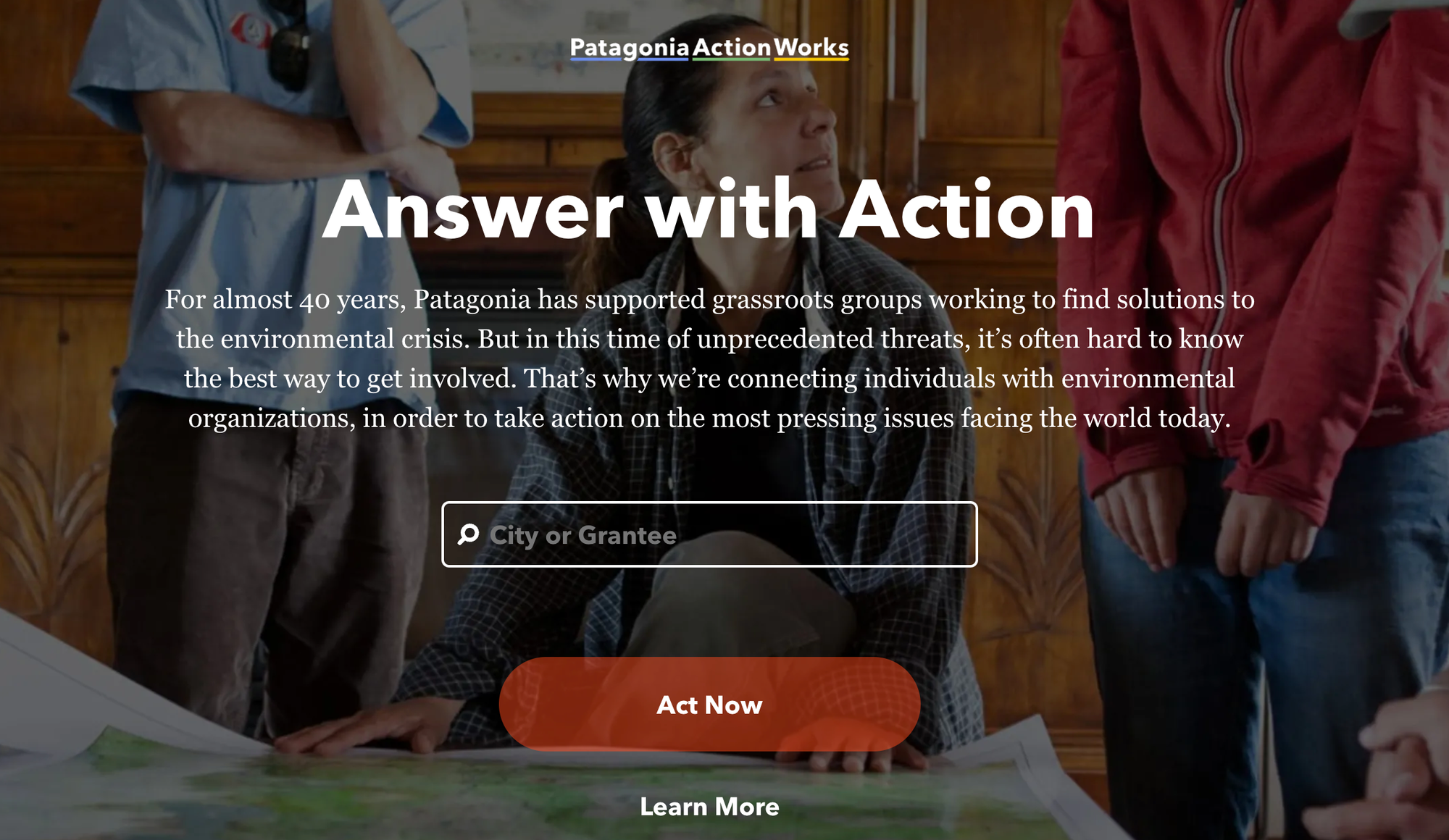
On the other hand, Millennials prefer longer-form content across multiple platforms (Facebook, Instagram, YouTube) and respond to aspirational messaging. They appreciate brand storytelling and are more likely to engage with traditional influencer marketing. Think long-form content about travel experiences, behind-the-scenes content of a product development process or ‘A day in the life’ perfect morning routines.
While both generations are digital-native, Gen Z has never known a world without smartphones, whereas Millennials grew up as technology was advancing.
Where to reach Gen Z online
So you want to attract Gen Z to your social profile? Gen Z will scroll past anything that feels too polished or corporate. They want to see the human side of brands and creators, complete with imperfections and genuine personality. So where are they engaging? Let’s find out.
Social media platforms
TikTok reigns supreme. You'll find Gen Z spending most of their time on TikTok, and it makes perfect sense why. The platform has mastered the art of keeping users engaged with its incredibly precise algorithm and endless stream of short videos.
As the US presidential election nears, TikTok has become a critical platform for engaging young voters. Both Kamala Harris and Donald Trump are leveraging short videos, memes, and viral trends to connect with Gen Z.
Harris’ KamalaHQ account has drawn 1.5 billion views with only 5 million followers, compared with Trump’s 12 million followers and 1 billion views.
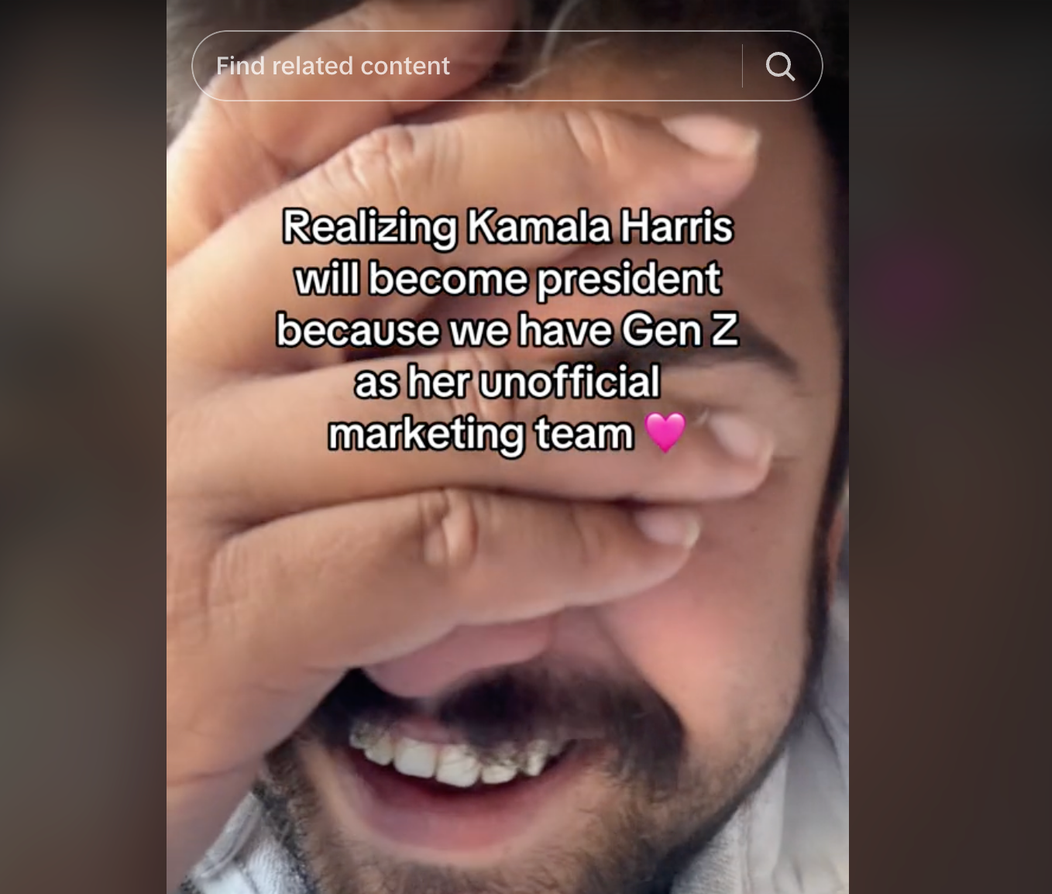
What's fascinating is how over 60% of TikTok users are under 25, making it a goldmine for reaching young audiences. Instagram hasn't lost its charm either - particularly through Reels and Stories, where Gen Z naturally expresses themselves and discovers new brands.
Gaming and streaming platforms
It's remarkable how Discord has transformed from a gaming chat platform into what's essentially a digital town square for Gen Z. They're creating communities around everything from music to art, fashion to coding. If you're looking to understand what Gen Z cares about, spend some time exploring Discord servers in your industry.
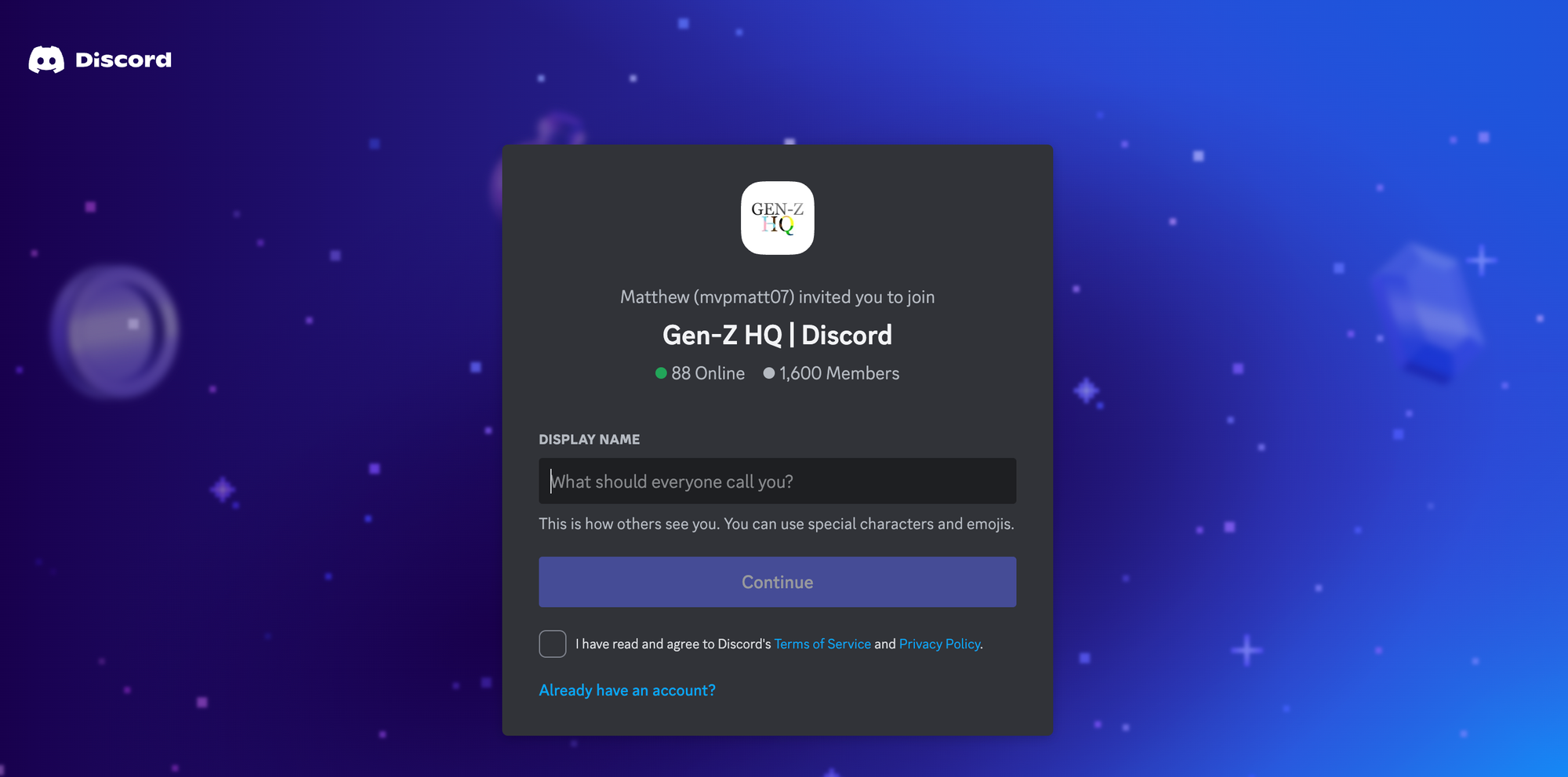
Meanwhile, Twitch continues to draw millions of young viewers who aren't just watching games - they're participating in a new form of interactive entertainment. Streamers often run polls to let viewers influence decisions. Viewers can earn channel points by watching content and redeem for custom rewards. There are cooking shows where the audience participates and IRL (In Real Life) streams where viewers help guide adventures.
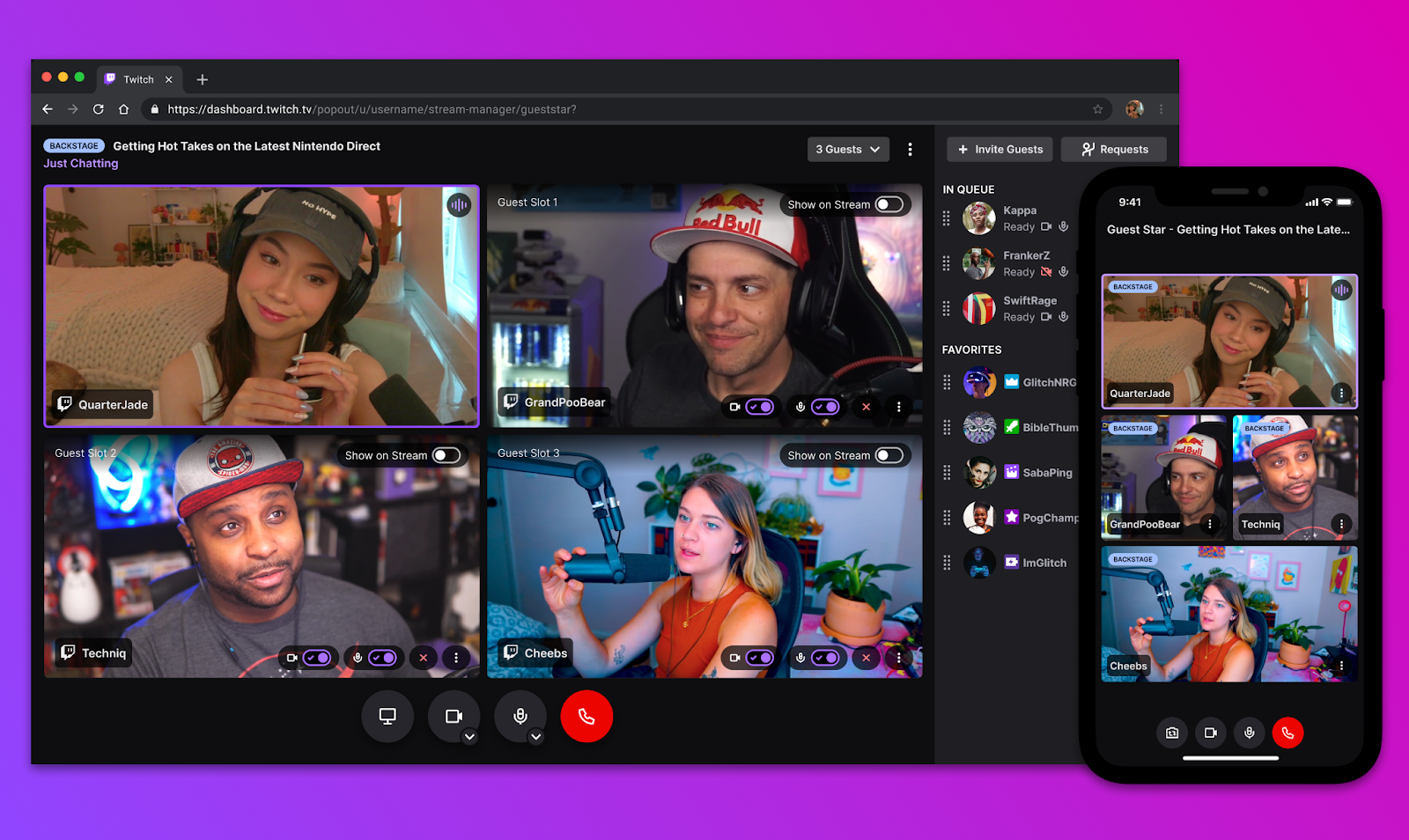
Educational and career-focused platforms
Here's something that might surprise you: Gen Z is quite active on LinkedIn. They're approaching it differently than previous generations, sharing more authentic career journeys and are surprisingly open about their professional challenges and aspirations. Gen Z are also incredibly committed to learning, and frequently turn to platforms like Whop and Udemy to develop new skills.

Messaging apps
The private conversation landscape is particularly interesting. While WhatsApp and Telegram serve as their digital living rooms for group chats, newer apps like BeReal are changing how Gen Z thinks about social sharing.
BeReal is a deliberate move away from Instagram's highly edited aesthetic. The app prompts users to take simultaneous front/back camera photos at random times, so there’s no time to stage photos or apply filters. It shows real life: messy rooms, study sessions, mundane moments, all of it.
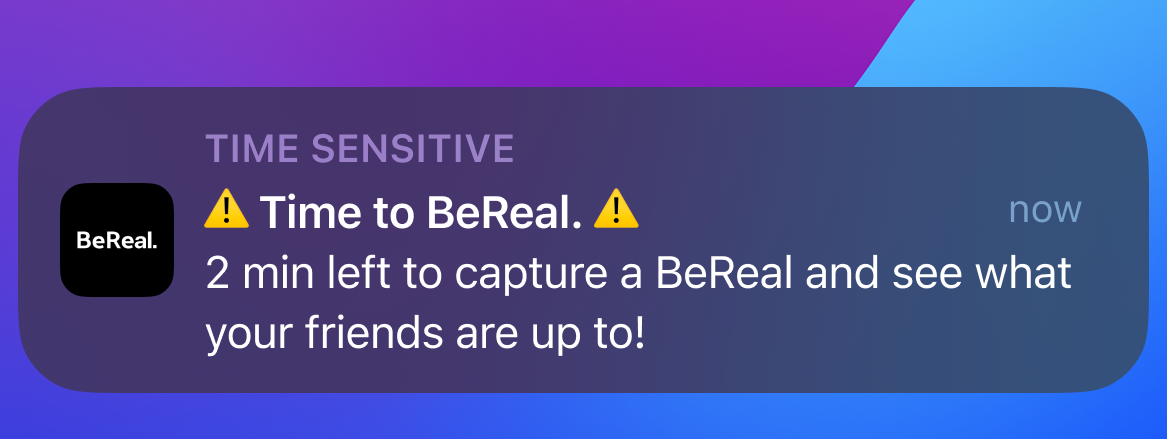
BeReal's success (over 25 million daily active users) shows us how much Gen Z values what’s real - they're tired of perfectly curated feeds and are drawn to real, unfiltered moments.
The new wave of independent platforms
Aside from the above popular platforms, we are seeing some interesting developments with newer platforms. Geneva is reimagining how online communities can function when offline, while Lemon8 blends content and commerce in innovative ways. What's particularly interesting is how these platforms succeed by focusing on specific niches rather than trying to be everything to everyone.
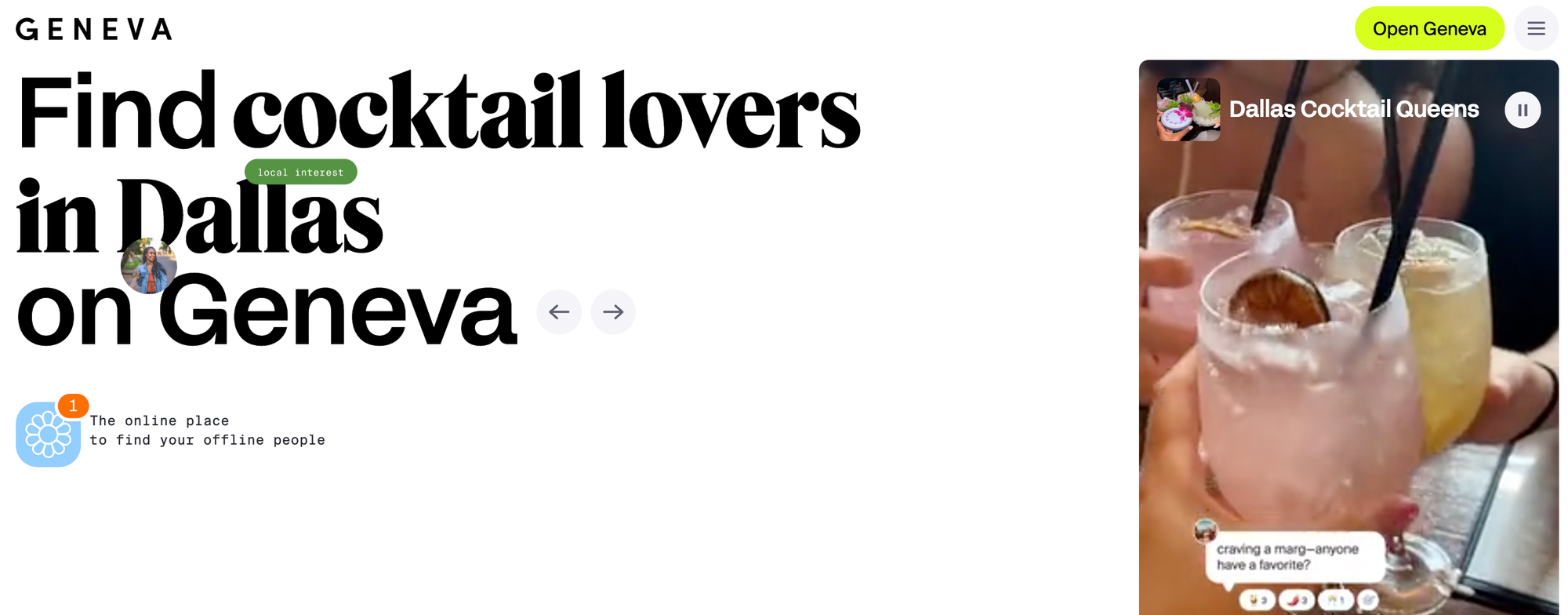
The key to connecting with Gen Z is understanding that they're not just looking for entertainment - they're looking for meaningful connections. Gen Z want to engage with brands and content creators who stand for something real and aren't afraid to show it.
When you approach Gen Z with genuine intention and transparency, you'll find them to be incredibly engaged and loyal.
Gen Z’s attitude to advertising
When it comes to marketing your products and services, Gen Z has reshaped how advertising works. They can spot a sales pitch from a mile away. Having been surrounded by ads their entire lives, they have a sort of sixth-sense for authenticity.
What's interesting is how this generation responds to traditional advertising: Gen Z don't just ignore it; they actively reject it. Polished, perfectionist ads that worked for millennials often fall flat with Gen Z. Instead, they're drawn to content that feels real, even if it's a bit rough around the edges. Think shaky smartphone footage over high-production commercials.
Trust is absolutely crucial for this demographic. They're more likely to buy something recommended by a smaller content creator they trust than a celebrity with millions of followers. This has led to the rise of micro-influencers – people with smaller but highly engaged followings who feel more relatable and real.
- User generated content (UGC): what is it, how do you use it, and how can it help your sales?
- Contextual advertising: Learn about the future of marketing
Interestingly, Gen Z doesn't mind being marketed to; they just want it done on their terms. They appreciate brands that are transparent about being brands and that stand for something beyond just making money. Social causes matter – but the commitment has to be genuine, not just performative.
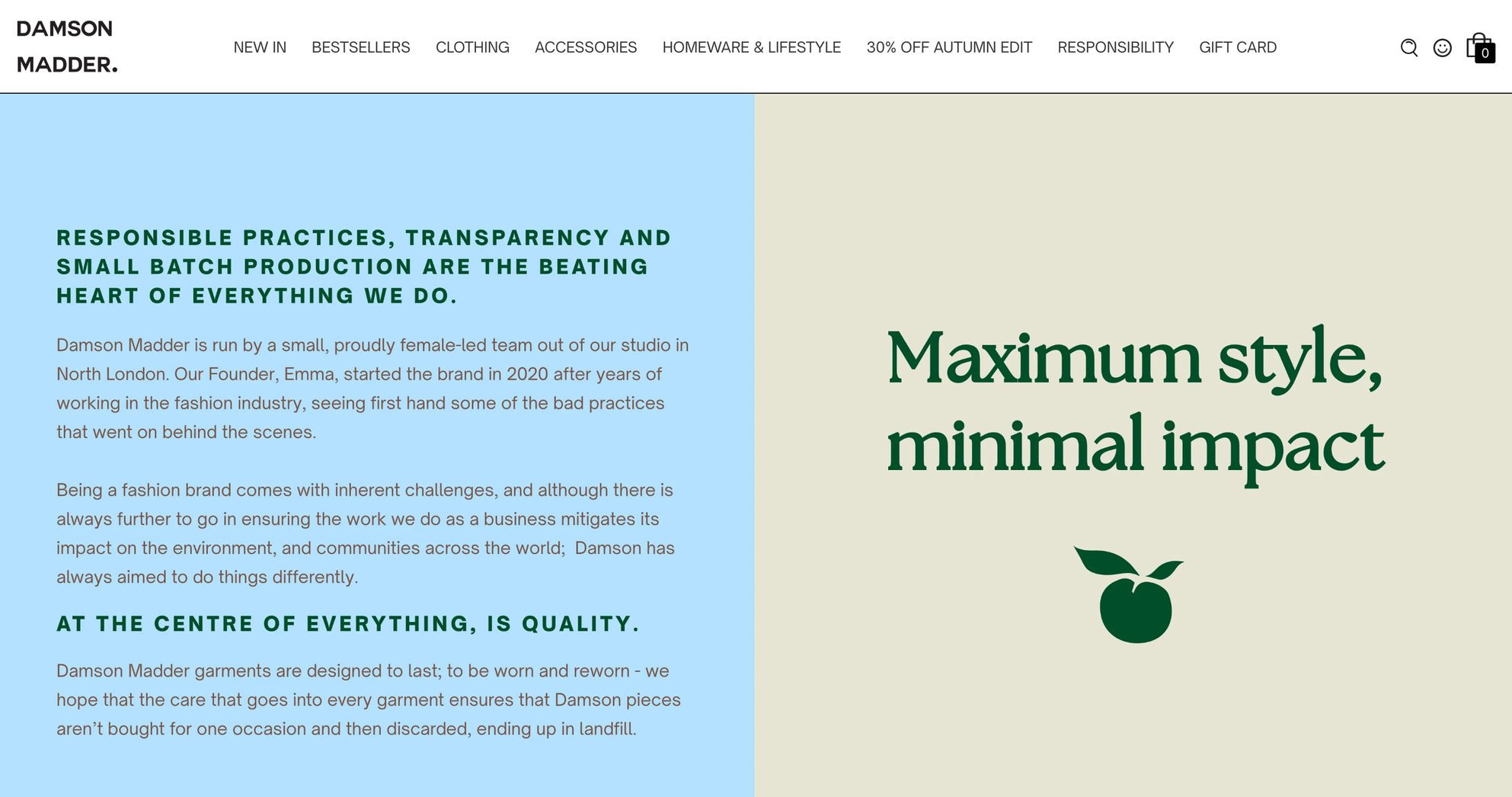
Humor plays well with this group, especially self-aware content that acknowledges its own nature as advertising. Brands that can poke fun at themselves or participate in trends naturally tend to perform better than those maintaining a rigid, corporate image.
Take KFC for example. In response to the 2018 chicken shortage crisis in the UK, when they ran out of chicken, KFC ran a full-page newspaper ad showing their signature bucket with the letters rearranged to spell "FCK," alongside a humble and humorous apology.
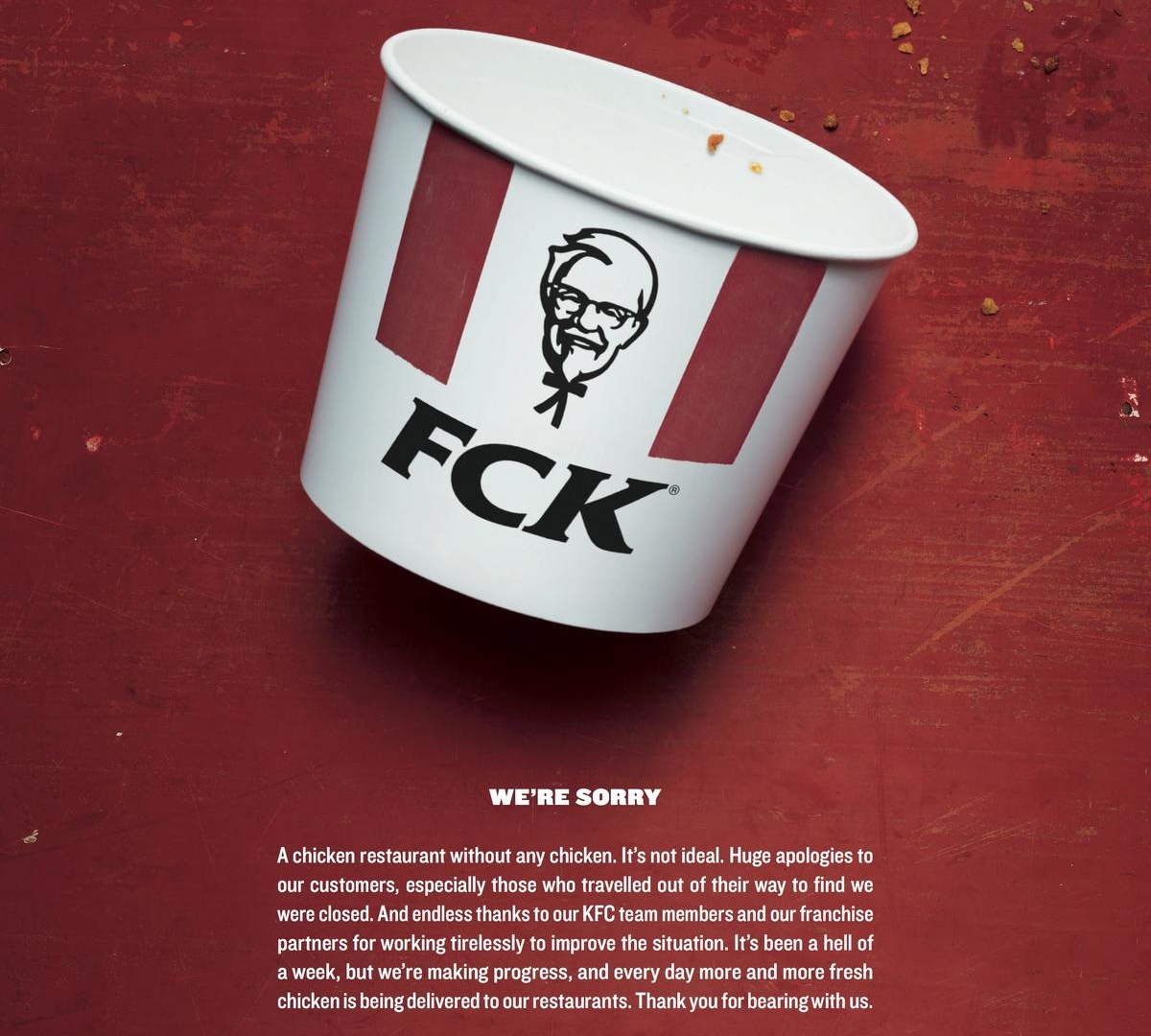
To reach Gen Z and connect with them, many companies have been forced to completely rethink their marketing strategies. There’s a noticeable shift away from traditional advertising methods toward more authentic, community-focused approaches.
How to advertise to Gen Z
Generation Z has seen it all, from traditional TV commercials to sponsored TikTok dances. But here's what's interesting: they're not just looking for the next flashy ad. They want something real, that speaks to who they are and what they care about.
Key elements that catch their eye:
• Brands taking genuine action on social issues (not just talking about them)
• Content that feels like it was made by a real person, not a marketing team
• Quick, engaging videos that get straight to the point
• Representation that reflects the world they live in and want to see
What's particularly interesting is how Gen Z interacts with social media advertising. They aren't just passive viewers - they want to be part of the conversation. That's why interactive content performs so well with them.
The humor element is crucial, but it needs to feel natural. When brands try too hard to speak "Gen Z language," it usually falls flat. Instead, they appreciate companies that can genuinely participate in internet culture while staying true to their identity.
Gen Z expects brands to engage with bigger issues. Climate change, social justice, and mental health are more than buzzwords to them. They're looking for companies that demonstrate real commitment to causes through actions, not just words.
When you put it all together, it comes down to this: to be successful in marketing to Gen Z, you need to find that sweet spot between entertainment and purpose. Brands that understand this balance aren't just reaching Gen Z - they're becoming part of their digital world.
Top Gen Z marketing trends for your business
Short-form videos, social commerce, authenticity in messaging, sustainable practices, are some key Gen Z marketing trends. Mobile-first approaches that prioritize instant engagement and personalization are important.
Let’s learn more.
Shift to real, authentic content
Gen Z gravitates toward raw, authentic material. They've developed a keen sense for detecting manufactured realness. Many can quickly identify when something is trying too hard to appear authentic, which they often find more off-putting than obvious advertising. A creator filming themselves making mistakes while cooking often gets more engagement than a perfectly executed recipe video.
The rise of social commerce
Social media isn't just for entertainment anymore—it's their primary shopping destination. When a product goes viral on TikTok, it can sell out within hours. This generation relies heavily on peer recommendations, turning to their favorite content creators for purchase decisions rather than traditional advertising channels.
The Stanley Cup craze is a great example. A simple 40oz water tumbler became a status symbol after going viral, with teens lining up outside stores at 5am to get new releases.
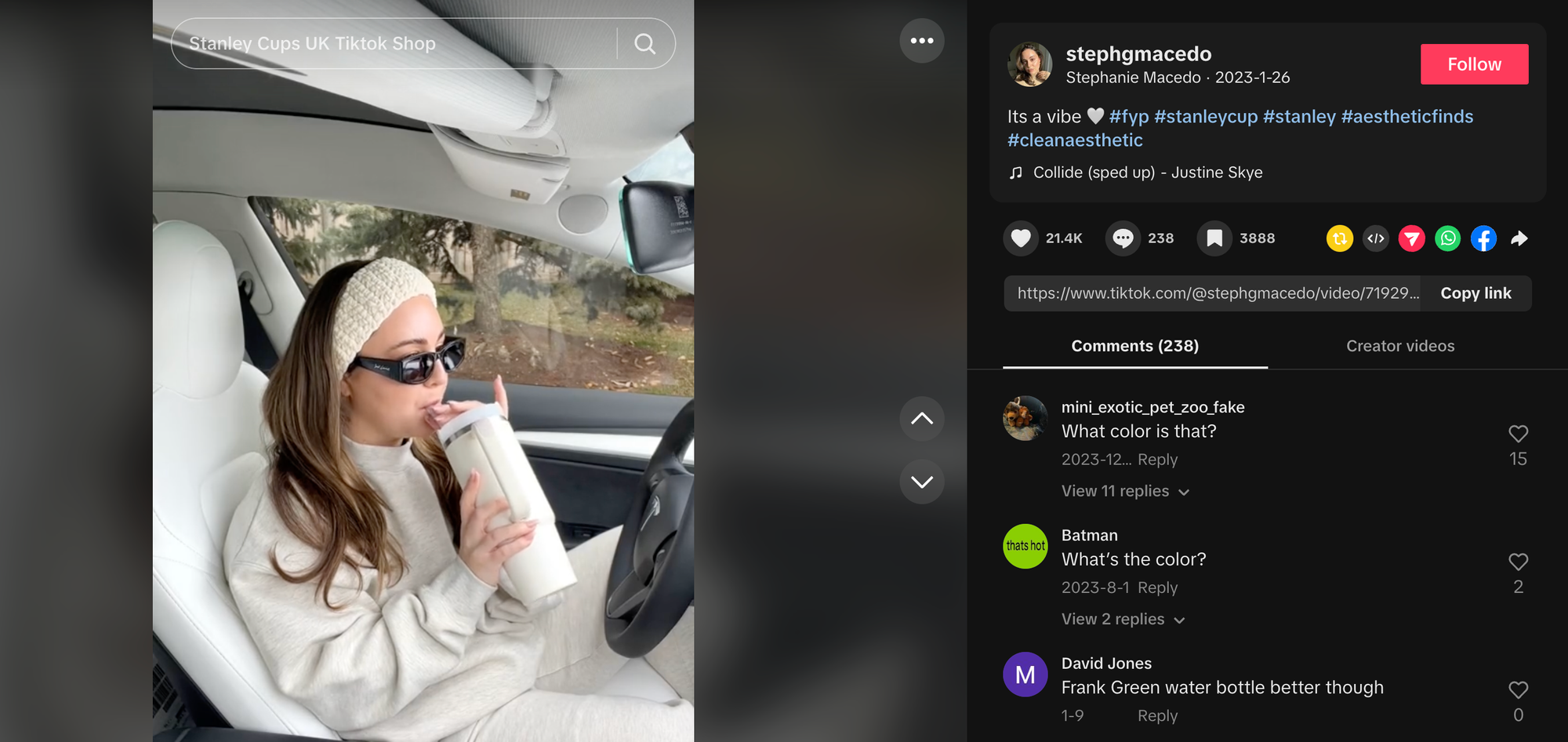
Values-driven consumption
Gen Z has an unprecedented commitment to sustainability and social causes. They're not just passively concerned; they actively investigate brands' environmental practices and social stances before making purchases. And, they're willing to spend more on products that align with their values.
One noteworthy example is the rise of secondhand fashion platforms like Depop and ThredUp. In 2020-2021, Depop saw massive growth driven primarily by Gen Z users (those born between 1997-2012), who both sell and buy used clothing to reduce fashion waste. When Etsy acquired Depop for $1.62 billion in 2021, their research showed that 90% of Depop's active users were under 26.
Micro-influencers over celebrity marketing
Interestingly, Gen Z often trusts micro-influencers more than celebrity endorsements. These smaller creators, who might have anywhere from 10,000 to 100,000 followers, foster stronger connections with their audiences through specialized content and authentic engagement. Micro-influencers like Manuela Baron (@thegirlgonegreen), who talks about sustainable and conscious living and gaining popularity, and Sophie (@saint.thrifty), who advocates for slow fashion & secondhand style, are gaining popularity.


5 of the best Gen Z marketing campaigns
Brands that resonate with Gen Z speak their language without trying too hard. Here are some examples.
1. Nike's "Play New" campaign
Nike's "Play New" campaign captured Gen Z's desire for inclusivity and realness. The campaign featured everyday athletes trying new sports and failing, to emphasize that it's okay to be imperfect. This resonated strongly with Gen Z who appreciates raw, unfiltered content and strongly rejects unrealistic standards. The campaign generated millions of user-generated content pieces across TikTok and Instagram, with Gen Z creators sharing their own "Play New" moments.
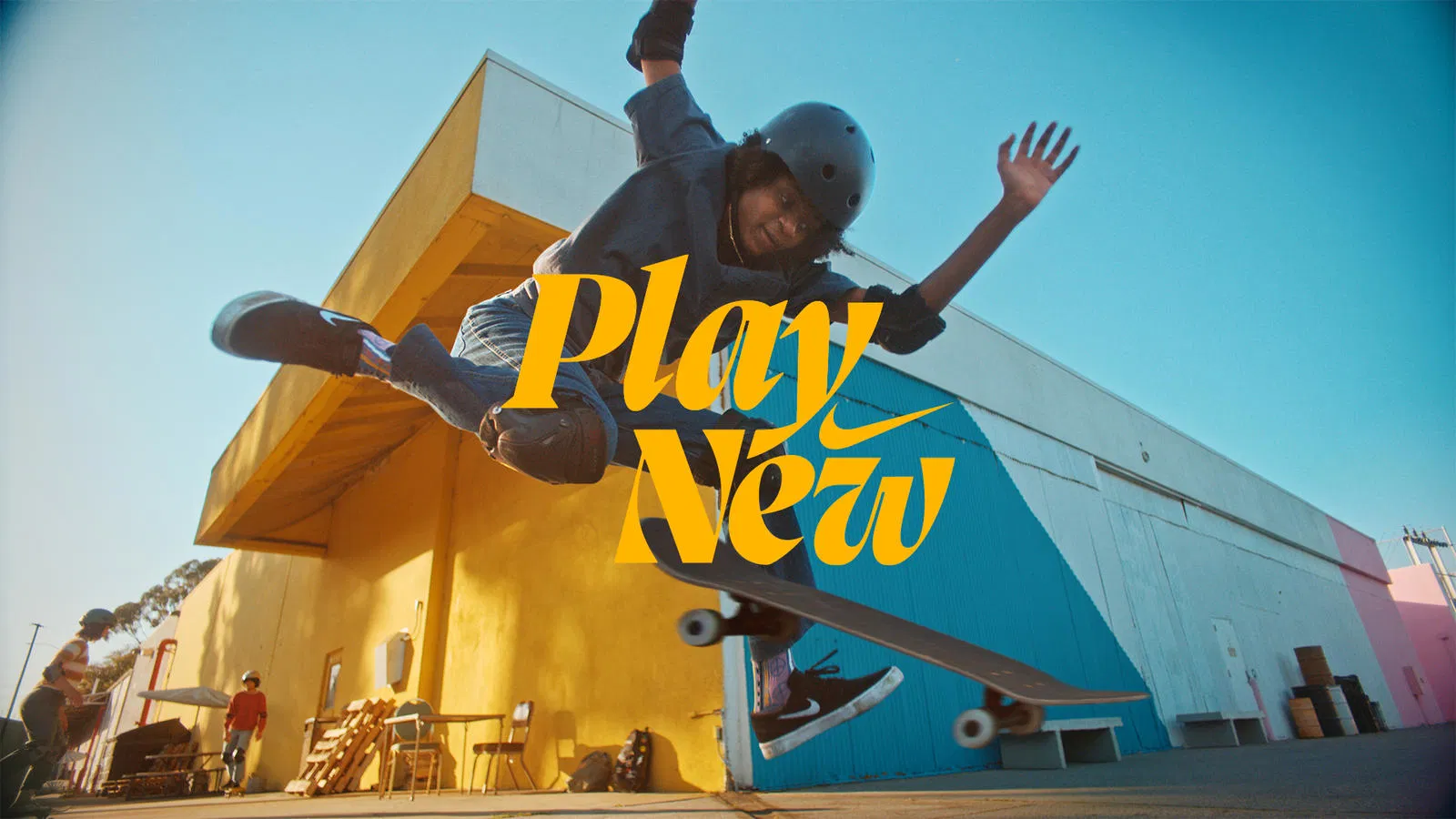
2. Duolingo's TikTok strategy
Duolingo's irreverent TikTok presence revolutionized brand communication with Gen Z. Their mascot, the "unhinged" green owl, became a viral sensation by participating in trending sounds and creating relatable content.
The language-learning app's approach demonstrated how brands can successfully use humor and trend participation without appearing forced. Their content strategy increased app downloads among Gen Z users by 60% in 2022.
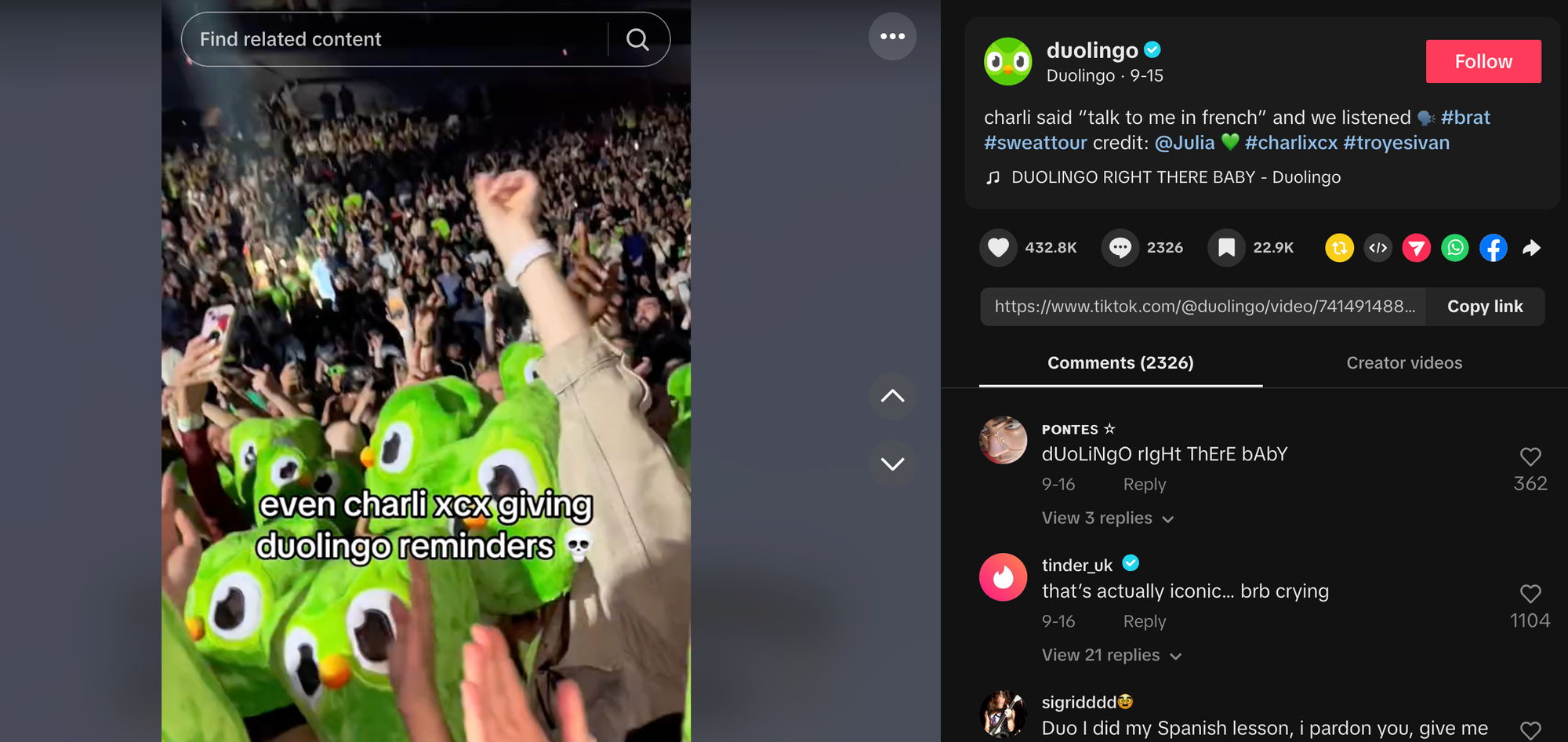
3. Spotify Wrapped's social-first evolution
Spotify's annual 'Wrapped' campaign evolved to become increasingly Gen Z-focused, incorporating shareable elements and personalized data storytelling.
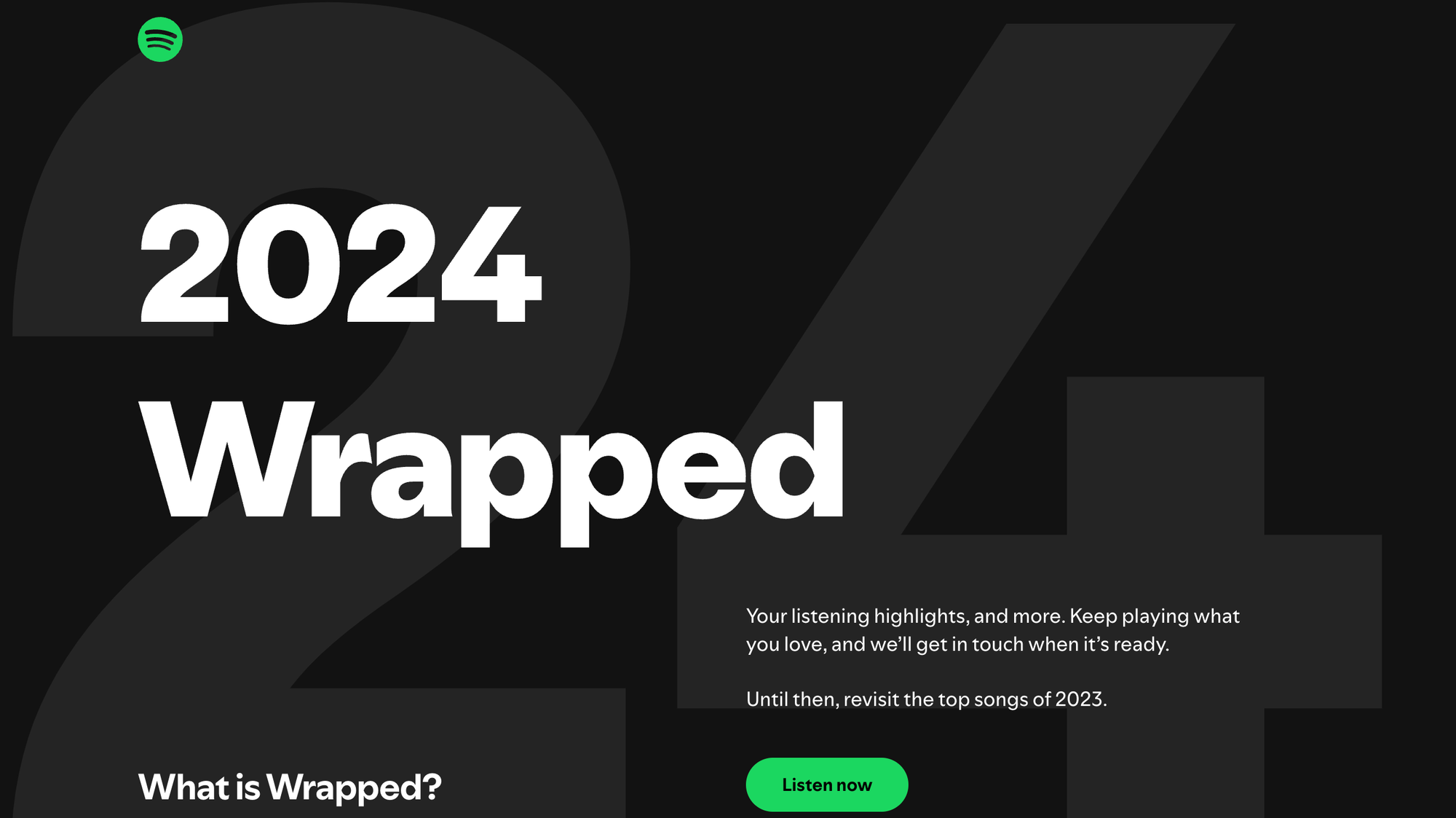
Features like "Your Audio Aura" and music personality types caters to Gen Z's love for self-expression and social sharing. The campaign consistently trends worldwide and Gen Z users eagerly share their music tastes on social media.
4. Patagonia's climate activism
Patagonia's bold move to make "Earth it's only shareholder" resonated deeply with Gen Z's commitment to environmental causes. Their transparent communication about sustainability efforts and direct activism approach aligned perfectly with Gen Z's desire for brands to take concrete action on social issues.
The campaign generated significant organic discussion across social media platforms, with Gen Z influencers praising the company's authentic commitment to environmental protection.
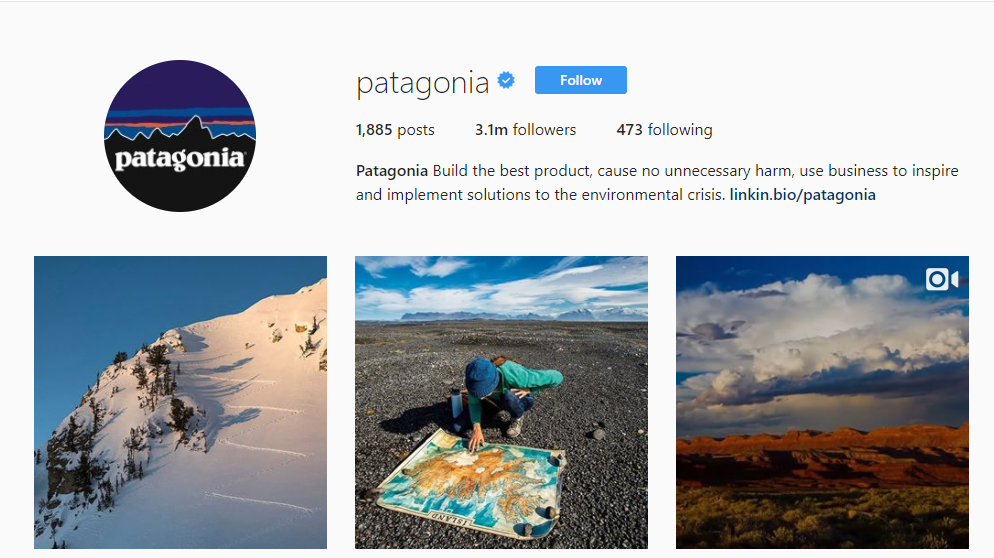
5. Chipotle's digital-first innovation
Chipotle's success with Gen Z stems from their innovative digital approaches. They were the first major restaurant chain to launch on TikTok, and Chipotle's #GuacDance challenge became one of TikTok's highest-performing branded challenges in the US, that generated over 250 million views. The brand's ability to create engaging digital experiences authentically has made them a standout example of successful Gen Z marketing.
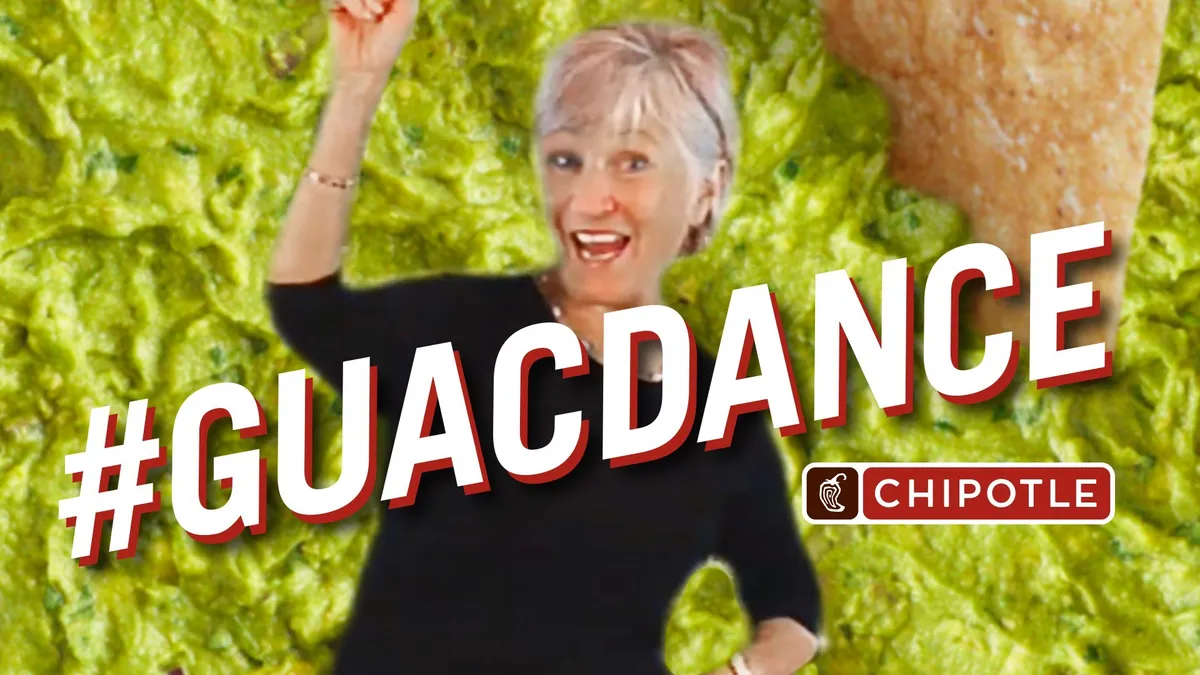
The bottomline: Gen Z craves authenticity and connection
Connecting with Gen Z on social media isn't just about hopping on the latest TikTok trend or posting aesthetic Instagram Stories. It's about building genuine relationships through platforms where Gen Z feels at home. The key? Being real, supporting meaningful causes, and creating content that invites conversation rather than just consumption.
As Alex Chen, Social Media Director at YouthPulse Solutions, notes, "The days of one-way marketing are over. Gen Z expects a seat at the table – they want to co-create, share their voice, and support brands that demonstrate real impact, not just intention."
Whether it's through micro-influencer partnerships, behind-the-scenes content, or interactive storytelling, success comes from staying adaptable and genuine. The brands that truly get this are the ones that will win Gen Z's trust and loyalty.
The best way to connect with your Gen Z audience? Through Whop.
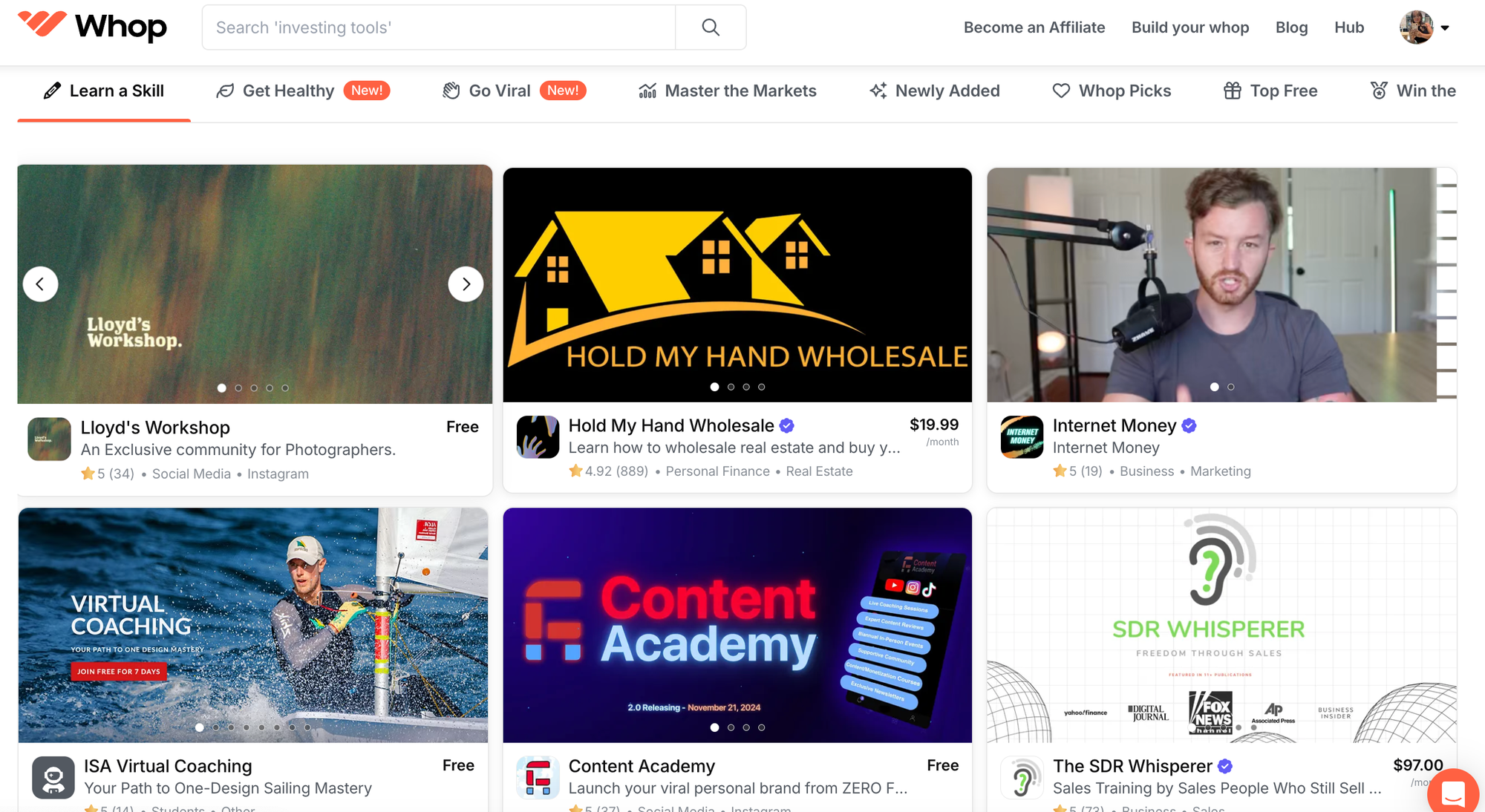
Whop is a social commerce platform founded by three Gen Z entrepreneurs. As such, Whop knows how to help entrepreneurs of all levels attract and retain a Gen Z audience.
With Whop you create your own whop. A whop is your internet hub, a place where you can create an online community, sell digital products, and connect with your audience. Thousands of businesses and brands are using a whop to not only sell digital products and services (like online courses, webinars, coaching, templates, software, and more) but also engage with their customers and followers. With the ability to add a chat function, host video calls, create a forum and share education via courses and worksheets, your whop can become a one-stop shop for products, services, engagement and growth.
If you want to connect with Gen Z, maximize your revenue, and ultimately grow your business, choose Whop.


